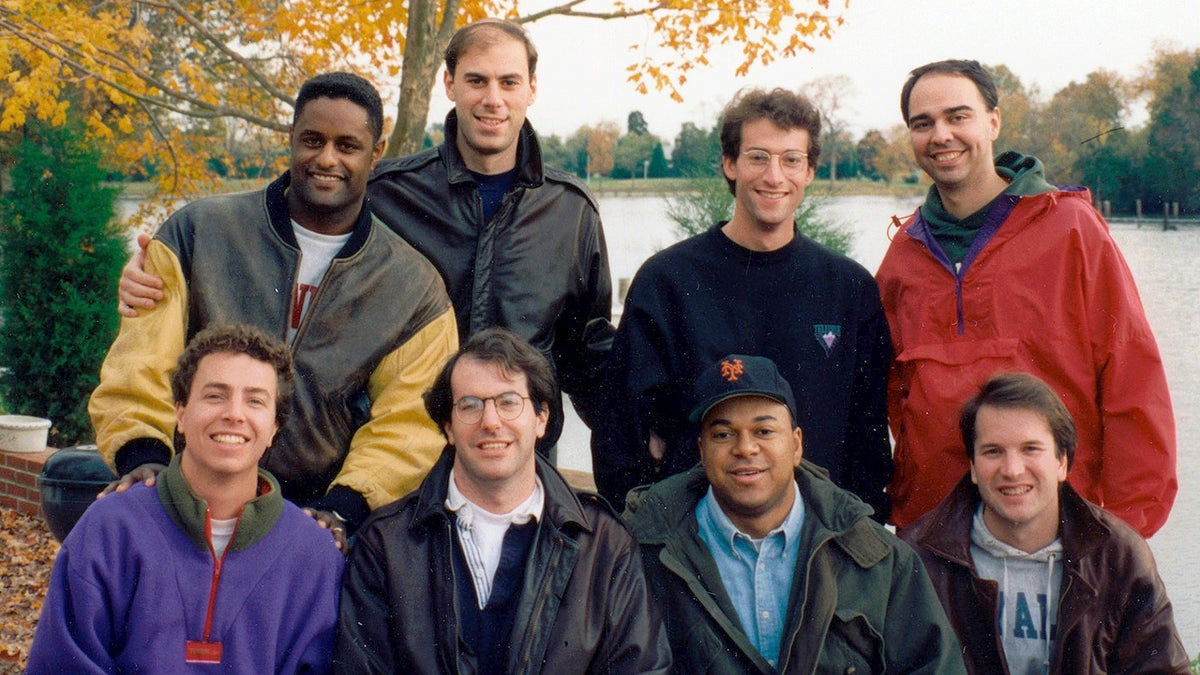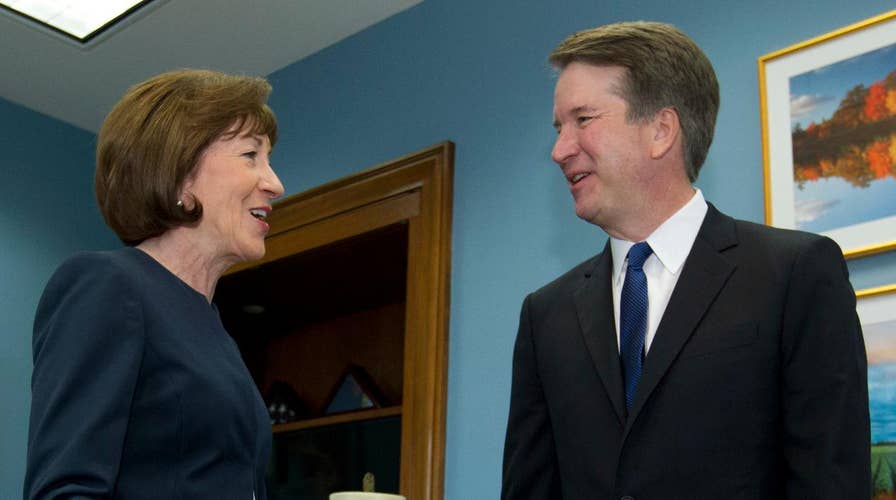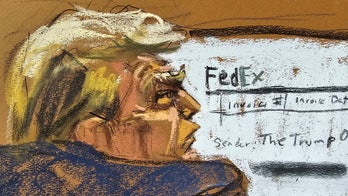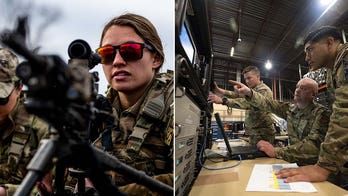Judge Kavanaugh nomination: Key players
Does Judge Bret Kavanaugh have enough votes in the senate to get a seat on the Supreme Court? Here’s a look at some of the undecided senators who could decide his fate.
From former law clerks to U.S. solicitors general, a bevy of venerable legal minds are prepared to testify in support of Brett Kavanaugh, the Supreme Court justice nominee.
Senate Democrats, too, have planned legal scholars – including the former White House counsel under the Nixon administration during the Watergate scandal – who will call into question Kavanaugh’s opinions on presidential authority. Other witnesses for the Democrats include a Christian woman who is worried about access to birth control in the U.S. and a Parkland school shooting survivor.
Senators have reportedly reviewed more than 1 million pages of documents pertaining to Kavanaugh’s career, and his views on affirmative action, voting rights and discrimination are coming under intense scrutiny as well.
Read on for a look at who is expected to be called as a witness – either for or against Kavanaugh – as the Senate Judiciary Committee confirmation hearings continue.
For Kavanaugh
Luke McCloud: Now in private practice, McCloud clerked for Kavanaugh from 2013 to 2014. He has said Kavanaugh is “someone who approaches cases fairly and with an open mind” and praised his efforts to hire minority lawyers.
Louisa Garry: A teacher in Locust Valley, New York, Garry said in a Judicial Crisis Network commercial for Kavanaugh she’s been friends with the judge for 35 years.
“I believe that we need to have bright, curious, open-minded, thoughtful, empathetic people who are judges,” Garry said. “And I trust that Brett is that person.”
Theodore Olson: A former U.S. solicitor general appointed under President George W. Bush, Olson is expected to testify on behalf of Kavanaugh. He was one of more than 40 veteran Supreme Court advocates who signed onto a letter to members of the Senate Judiciary Committee in support of Kavanaugh, saying he has a “well-deserved reputation as an outstanding jurist.”
Colleen E. Roh Sinzdak: Someone who identifies politically as “definitely on the left,” Sinzdak told The New York Times she initially did not realize Kavanaugh worked in the Bush administration when she took his class in 2009, saying he was balanced as a professor.
Akhil Amar: A professor of law and political science at Yale Law School, Amar called Trump’s nomination of Kavanaugh the president’s “finest hour” in a piece for The New York Times. He said he is a Democrat who supported Hillary Clinton for president and praised Kavanaugh’s interpretation of the Constitution, mentorship of the vast number of law clerks he’s sent to the Supreme Court and willingness to admit mistakes.
Rebecca Taibleson: A Wisconsin lawyer, Taibleson once clerked for Kavanaugh and has praised him for helping women, such as herself, obtain a Supreme Court clerkship. (Taibleson eventually clerked for the late Justice Antonin Scalia.)
Kavanaugh’s “hiring and support of women alone has helped to really diversify the range of Supreme Court clerks and the jobs that tend to follow Supreme Court clerkships,” she told The Daily Signal.
Kenneth Christmas: An executive vice president at Marvista Entertainment, Christmas was Kavanaugh’s roommate at Yale Law School. In college, Christmas has said Kavanaugh was an avid sports fan who was a “bland eater.”

Supreme Court nominee Brett Kavanaugh, front row far right, poses with Yale University Law School classmates at Kavanaugh's parents' home in St. Michaels, Md. Front row from left are Steve Hartmann, Jim Brochin, Richard Roberts, and Kavanaugh. Back row from left are Ken Christmas, James Boasberg, Zeb Landsman, and Edmund Burns. (Martha Kavanaugh via AP)
Paul Clement: A former U.S. solicitor general appointed under President George W. Bush’s administration, Clement is expected to testify on behalf of Kavanaugh.
Jennifer Mascott: Formerly a law clerk for Kavanaugh, Mascott told CBS News the judge “keeps an open mind and sticks to the law.”
“He’s referred to the judge’s role as that of an umpire, so I expect that with [the issue of abortion] or any others, if they were to come before him and he were to be confirmed as a Supreme Court justice, that he would continue to keep an open mind and just call the issues as they are before him in that case,” she said.
Adam White: A professor at the Antonin Scalia Law School of George Mason University, White has praised Kavanaugh’s “uncanny ability to identify fundamental threats to our Constitution’s republican institutions, and to anticipate the Supreme Court’s own eventual response.”
Monica Mastal: A real estate agent in Washington, D.C., Mastal has a daughter who plays on the basketball team that Kavanaugh coaches.
Maureen Mahoney: Mahoney is a former deputy U.S. solicitor general.
A.J. Kramer: Kramer is a federal public defender in Washington, D.C.
Against Kavanaugh
John Dean: A former White House counsel for President Richard Nixon, Dean is expected to serve as a key witness for Senate Democrats who have questions about his opinions on presidential protections and authority.
Rep. Cedric Richmond: As the chairman of the Congressional Black Caucus, Richmond, a Democrat from Louisiana, is expected to testify regarding issues pertaining to civil rights, voting and affirmative action, The Times-Picayune reported.
Rochelle Garza: A Texas-based attorney, Garza has represented undocumented minors who sought to have abortions while in federal custody. In a 2017 case regarding a teenage migrant who had Garza as her guardian, Kavanaugh issued a dissent after the court allowed for her to have an abortion, saying the majority opinion was “radically inconsistent with 40 years of Supreme Court precedent.”
Elizabeth Weintraub: The Association of University Centers on Disabilities (AUCD), where Weintraub serves as a senior advocacy specialist, has publicly opposed Kavanaugh’s nomination to the Supreme Court.
Andrew Imparato, the AUCD executive director, has said Kavanaugh’s appointment “threatens civil rights protections for people with disabilities including access to healthcare.” He also said Kavanaugh’s record shows he’s “failed to support the critical principle of self-determination for people with intellectual disabilities and the importance of access to healthcare for millions of Americans with disabilities.”
Alicia Baker: A seminary graduate student, Baker said she opposes Kavanaugh because as a Supreme Court justice he could hinder women’s access to birth control in the U.S.
“Because I’ve experienced firsthand what it’s like to struggle to afford the birth control my family needed, I know how important it is to make sure Judge Kavanaugh isn’t given the chance to sit on the Supreme Court,” she wrote in a piece for USA Today in August.
Aalayah Eastmond: A survivor of the February school shooting in Parkland, Florida, that claimed the lives of 17 people, Eastmond is expected to discuss gun control and violence during her testimony. She is a representative for the Brady Campaign, an organization that aims to curtail gun violence, and led a march across the Brooklyn Bridge in June to protest gun violence.
Melissa Smith: A public high school teacher in Oklahoma City, Smith will testify about labor rights and public education, according to guidance from Sen. Dianne Feinstein, the ranking member of the Senate Judiciary Committee.
Melissa Murray: Murray is a professor of law at New York University. She will talk about reproductive care, particularly in underserved areas, according to Feinstein’s office.
Rebecca Ingber: Ingber is an associate professor of law at Boston University School of Law. She will give testimony regarding national security, executive authority and international law.
Lisa Heinzerling: A professor of law at Georgetown University Law Center in Washington, D.C., Heinzerling is expected to discuss corporations and their effect on the environment as well as executive authority, according to Feinstein’s office. She has predicted Kavanaugh would “transfer a great deal of power to the president and withhold a good deal of power from administrative agencies.”
In a series of tweets, Heinzerling also said Kavanaugh “has been auditioning for” a spot on the Supreme Court for years as he’s pushed “precedent to the limit, creating new approaches to statutory interpretation and the separation of powers.”
Peter Shane: A professor of law at Ohio State University, Shane is expected to speak about executive power. In a piece for Slate, Shane argued that it’s crucial for senators to examine how closely Kavanaugh worked with the Bush administration regarding executive orders and other powers.
“In the Age of Trump,” Shane wrote, “it is truly imperative that the Senate understand a prospective justice’s stance on presidential accountability in a system of checks and balances.”
Hunter LaChance: From Maine, LaChance will discuss environmental regulation, according to Feinstein’s office.
Jackson Corbin: From Pennsylvania, Corbin is expected to testify regarding ObamaCare and health care coverage for pre-existing conditions, Feinstein’s office said.
The Associated Press contributed to this report.





